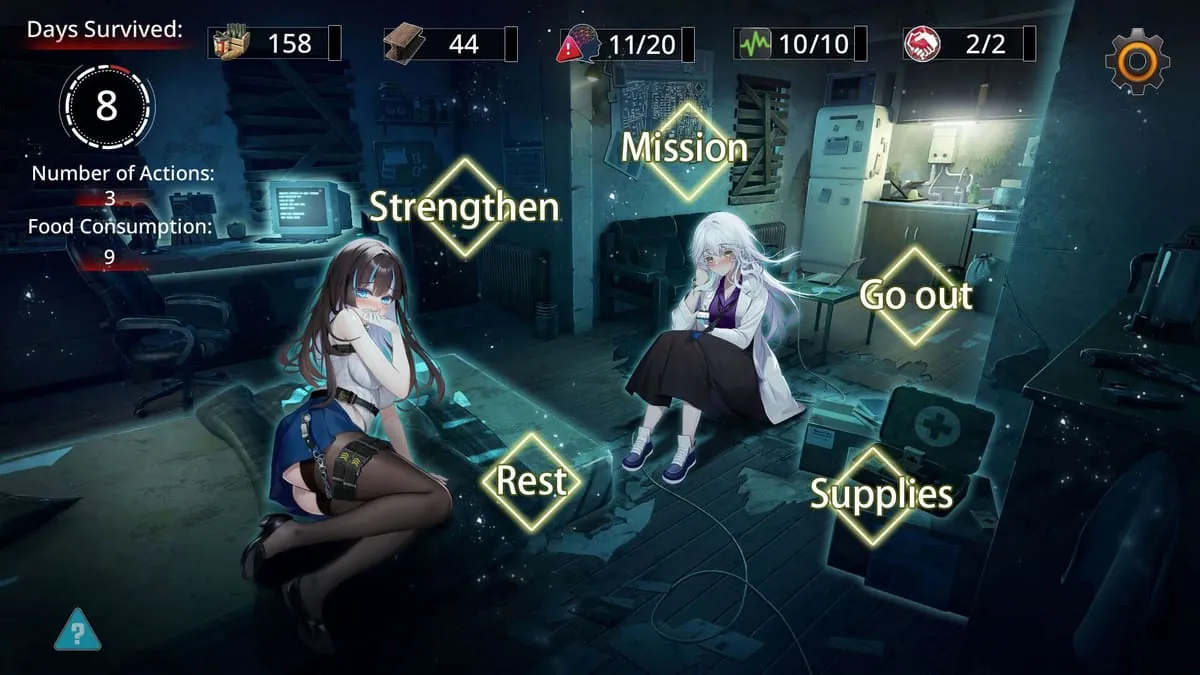
Rainy Day
Play Rainy Day
Rainy Day review
Exploring the Unique Features and Gameplay of Rainy Day
Rainy Day is a distinctive interactive game that has captured the attention of many players seeking immersive storytelling combined with engaging gameplay. This article dives into what makes Rainy Day stand out, from its narrative depth to its unique mechanics. Whether you’re curious about the game’s features or looking for tips to enhance your experience, this guide offers a comprehensive look at everything Rainy Day has to offer.
Exploring Rainy Day: Gameplay, Story, and Features
What is Rainy Day? Overview and Core Gameplay
Picture this: You’re curled up on a sofa, actual rain tapping against your window, and you launch Rainy Day for the first time. Instantly, you’re transported into a hand-painted world where every droplet tells a story. 🌧️ This isn’t just another indie title—it’s an atmospheric journey blending relaxing exploration with emotionally charged choices. At its heart, the Rainy Day game overview reveals a life-sim adventure set in a sleepy coastal town during monsoon season. You restore a crumbling bookstore while navigating relationships, mysteries, and seasonal storms.
The core gameplay loop is beautifully simple yet profound. Mornings involve brewing coffee ☕, tidying shelves, and chatting with locals. Afternoons? That’s when you explore rain-slicked streets, solve environmental puzzles (like redirecting drains to unlock hidden paths), and help neighbors with quirky tasks. Evenings bring dialogue trees where your responses shape friendships. I once snapped at a fisherman over trivial gossip—he refused to sell me rare books for weeks! 😅
Key Rainy Day gameplay mechanics include:
– Dynamic Weather System: Storms alter NPC routines—some hide indoors, while others share secrets in cozy cafes.
– Resource Crafting: Combine driftwood, rainwater, and old books to repair your shop or build tools.
– Mood-Based Interactions: Characters react to your emotions; a cheerful compliment opens doors a frown slams shut.
🎮 Pro Tip: Always carry an umbrella! Sudden downpours boost foraging rewards but drain your “coziness” meter.
Storyline and Character Development in Rainy Day
The Rainy Day storyline starts with you inheriting a bookstore from a reclusive aunt, but it quickly spirals into unraveling her hidden past. What gripped me wasn’t just the central mystery—it’s how every villager’s arc intertwines with yours. Take Kai, the baker battling anxiety; ignore his struggles, and his shop closes. Support him, and he becomes a confidant who helps decode your aunt’s journals. 🥐
Character development Rainy Day shines through “Memory Vignettes.” Choosing to replay flashbacks (like childhood arguments) lets you alter present-day relationships. One playthrough, I encouraged a friend to reconcile with her estranged brother—later, they teamed up to save my store from flood damage! These arcs aren’t filler; they’re emotional anchors. 😢
Your own growth is mirrored through skill trees. Focus on “Empathy,” and you’ll detect NPCs’ hidden moods. Invest in “Resourcefulness,” and you’ll craft storm-proof upgrades. My biggest regret? Neglecting “Community” skills early—I missed a heartbreaking subplot about wartime letters hidden in book spines.
Unique Features and Mechanics That Set Rainy Day Apart
Forget cliché simulators—Rainy Day’s magic lies in its interactive game features. The “Puddle Reflection” mechanic lets you rewind decisions ⏪️ (like choosing which villager to aid during a storm) to see alternate outcomes. Then there’s “Sound Weaving,” where you mix rain rhythms and ambient noise to compose music that affects NPC moods. Calm melodies soothe arguments; thunderous beats reveal hidden truths! 🎶
Decision-making in Rainy Day is deliciously complex. Choices aren’t just “good vs. evil.” Allocate limited funds to fix your roof OR help a friend’s business? Save heirloom books OR use them to barter for medicine? I prioritized profit once—the town became hostile, and my ending felt like a lonely drizzle. ☔
But what truly stunned me? The procedural storytelling. Each playthrough randomizes weather patterns and NPC quirks. One game, the librarian adored poetry; the next, she despised it! This isn’t just replayability—it’s reinvention.
| Feature | Mechanics | Player Impact |
|---|---|---|
| Living Town System | NPCs develop routines/rivalries based on your actions | Forces meaningful trade-offs; no two playthroughs match |
| Emotional Crafting | Combine items during specific moods (e.g., “melancholy + seashell = healing charm”) | Deepens immersion; rewards emotional awareness |
| Dynamic Flood Maps | Heavy rain reshapes explorable areas weekly | Demands adaptive exploration strategies |
🌟 Gameplay Tips Rainy Day: Talk to EVERYONE after storms—they drop hints about rare resources. Also, gift books matching NPC personalities (e.g., thrillers for the detective)!
Finally, master decision-making in Rainy Day by pausing before big choices. Ask: “Does this align with my character’s growth?” My happiest ending came from balancing community needs with personal healing. Ready to dance in the rain? Your story awaits. 💧
Rainy Day offers a compelling blend of narrative depth and interactive gameplay that appeals to players looking for an immersive experience. Its unique features and engaging storyline make it a memorable game worth exploring. Whether you’re new to the game or looking to deepen your experience, understanding its core mechanics and story elements will enhance your enjoyment. Dive into Rainy Day today and discover the rich world it has to offer.





















